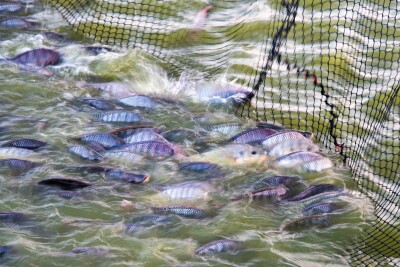Beginning June 1, some New England fishermen will be flipping a switch on a brand new digital camera before they leave the dock. No, this isn’t just a way for them to send in more candid crew shots to National Fisherman — they’re finally getting a shot at electronic monitoring.
The electronic monitoring systems use cameras to record fish handling on deck. NOAA photo.Only a handful of vessels are getting the equipment this season in what is being considered a soft-launch for the program. The Cape Cod Commercial Fishermen's Alliance says up to 20 groundfish boats will use the cameras to start. Over the next year, fishermen and NMFS will hopefully be able to work out any kinks that may arise.
While years ago the average fisherman might not have been keen on the idea of a government camera watching their every move, today’s fleet has been looking forward to them. No one is a fan of prying eyes while going about a day’s work, but cameras seem to be a decent alternative to at-sea observers.
Fishermen turn on the cameras when they’re preparing for a fishing trip, go catch some fish and hand off the hard drive with video footage to a third-party review team when their back on shore.
The industry is expecting electronic monitoring to help ease the burden of observer costs and be for affordable in the long run.
NMFS estimated that electronic monitoring would cost over $60,000 annually per vessel along with nearly $60,000 in start-up costs for equipment and other expenses, but costs for video review aren’t set in stone. It isn’t an inexpensive option, but for some smaller boats that can’t hold an extra person or fishermen in troubled fisheries, it could be the only option to keep running.
On top of the obvious benefits to the monitoring bill and day-to-day operations, having set cameras on board could benefit the industry in other ways. This is a way of keeping people safe, as an extra observer, sometimes not the most experienced seaman, could prove dangerous in some situations. The access to video could also help accident reports, basic employee management and even help in future gear studies.
While the option of having cameras onboard is an “in progress” projects, it’s a step in the right direction toward keeping fishing affordable. Fisherman should have the option at the very least.







